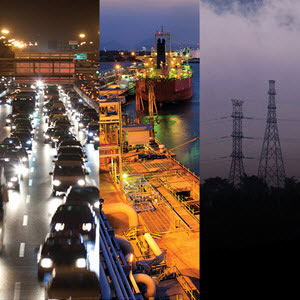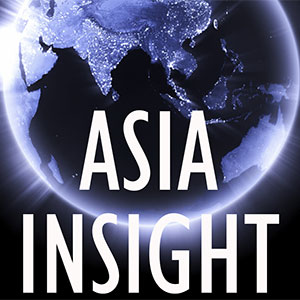U.S. Energy Policy in Asia
NBR’s Dan Aum interviews Jonathan Elkind (Columbia University, former Assistant Secretary of Energy for the Office of International Affairs) and Clara Gillispie (NBR) about U.S. energy policy in Asia. Elkind and Gillispie discuss the role of energy in the “Free and Open Indo-Pacific” strategy, how countries in the region are responding, what U.S.-China trade tensions have to do with energy, and what they would like to see from the Trump administration’s policies in the future.
Jonathan Elkind is a Fellow and Senior Research Scholar at Columbia University’s Center on Global Energy Policy. He joined Columbia after a long and distinguished career devoted to energy and environment policy in the private and public sectors. Since 2009, he has worked on international energy and climate issues at the U.S. Department of Energy, helping coordinate policy objectives within the Obama Administration as well as lead climate and energy programs with key global partners. He departed Department of Energy as Assistant Secretary for International Affairs.
Clara Gillispie is Senior Director of Trade, Economic, and Energy Affairs at NBR. In this capacity, Ms. Gillispie leads research, publications, and activities for a range of initiatives, including programming on innovation and intellectual property rights. Her subject-matter expertise focuses on shaping program and research agendas on energy security, trade and innovation policies, public health and the environment, and geopolitical trends in the Asia-Pacific.
Time Stamps
Q1 [2:30]: How did your interest in energy policy begin?
Q2 [4:50]: What is the U.S. energy policy toward Asia?
Q3 [8:49]: Can you separate energy policy from broader policy toward Asia?
Q4 [10:15]: How do Japan and South Korea fit into our energy policy?
Q5 [12:30]: What are the primary concerns from other countries in the region? How have they been reacting to U.S. policy?
Q6 [15:33]: What is the future of U.S.-Russia relations on energy?
Q7 [18:40]: What are the prospects for a Russia-Japan energy pipeline?
-
- NOTE: The discussion references NBRs 2018 Energy Security Program, “
The Emerging Russia-Asia Energy Axis
- ” (publication forthcoming)
Q8 [20:12]: How are U.S.-China tensions on trade affecting energy policy?
-
- NOTE: The discussion references the report “
A Natural Gas Giant Awakens: China’s Quest for Blue Skies Shapes Global Markets
- ” by David Sandalow, Akos Losz, and Sheng Yan
Q9 [27:55]: How is the energy industry handling uncertainty in U.S. policy?
Q10 [35:50] What have you seen in the Trump administration’s approach to investing in emerging energy technology?
Q11 [40:20] What do you wish the administration would consider as it formulates energy policy?
Q12 [43:58] What is the most promising energy source for the future and why?
Q13 [45:00] What book on energy would you recommend to an Asia generalist?
- NOTE: The response references the following:
-
- Energy: A Human History by Richard Rhodes
- Taming the Sun: Innovations to Harness Solar Energy and Power the Planet by Varun Sivaram
- Windfall: How the New Energy Abundance Upends Global Politics and Strengthens America’s Power by Meghan O’Sullivan.
About Asia Insight
The NBR podcast series Asia Insight features interviews with top Asia experts about key issues affecting the Indo-Pacific region, with a focus on implications for U.S. policy and businesses. Subscribe to Asia Insight on Apple Podcasts and let us know what you think of the podcast on Twitter.
Media Contact: Dan Aum, [email protected] or (202) 347-9767.
Asia Insight theme music is by Laura Schwartz of Bellwether Bayou.



